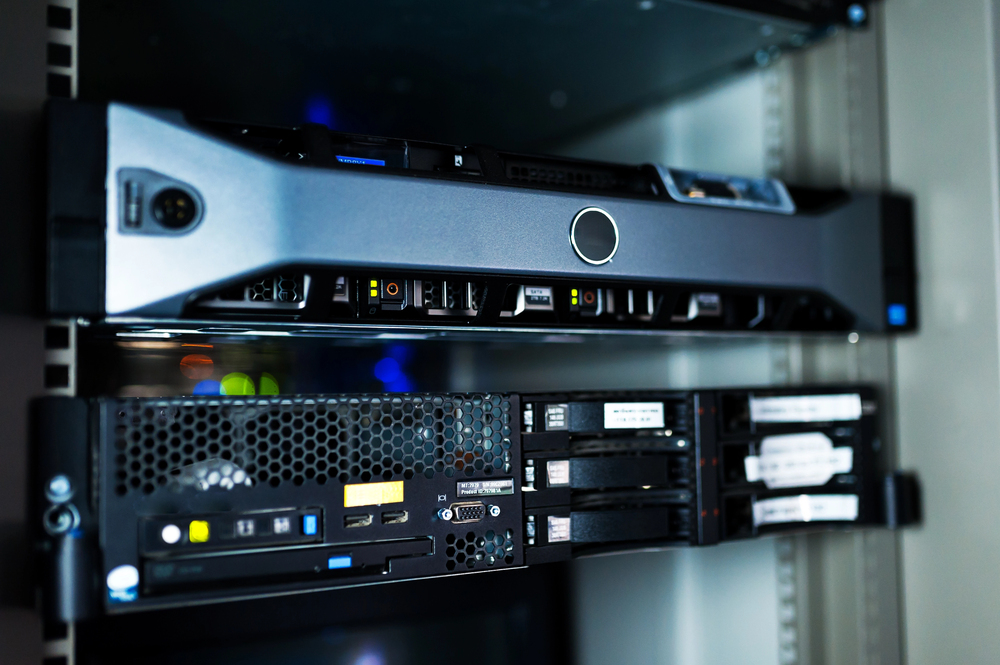Business IT systems are a tricky area to gauge. When you’re starting out in business and working from home, the temptation might be to limit your spending. In time, this can lead to business performance limitations.
Conversely, investing big money in unnecessary tech might offer you the edge when it comes to systems, but does it come at the expense of limiting other parts of your business?
There’s no right or wrong answer. Instead, there’s simply a balance to be struck. The good news is, we’ve put together some business IT related questions that will help you get a feel for that balance, and help you decide if expanding into more sophisticated networking technology could be a positive step for your small business.
Where do most home businesses begin?
Generally, most startup businesses grow from very humble IT beginnings, with a heavy reliance on the internet to deliver any connectivity they need.
For most small businesses, this looks like a series of laptops, desktops or mobile devices that connect with a relatively low-speed internet connection where they are usually just using email or cloud-based software. While this will often cover the absolute basics, it leaves you very limited in a number of areas, particularly storage, collaboration and working off-site, and that’s before you’ve bitten the bullet and acknowledged that this kind of setup often leaves big data protection holes that a cybercriminal would be delighted to fill.
This kind of setup works but it’s going to limit what you can do with your business going forward, especially in a world where ‘business agility’ is a lingering buzzword.
What does a network offer?
A business IT network’s core function is accurately described in its name. It’s a series of devices and connections that are designed to bring your entire organisation’s IT into one coherent place, and do it safely.
The connections and behind-the-scenes tech are really just the infrastructure though; the benefits are much more tangible:
- Centralised applications: For most businesses, there are key software applications that keep things running smoothly. Sometimes that’s customer service platforms, in other cases, it’s accounting, book-keeping, databases, design platforms and much more.
By centralising these applications, you create a greater sense of cohesion in your workplace. People can be working on the same systems at the same time, offering a seamless customer and end-user experience.
- Centralised storage: When you centralise storage, you’re moving mission critical data off people’s local machines and into a central location, where it can be protected and accessed appropriately. When it needs to be accessed, it can be done by anyone with the appropriate network credentials, making collaboration between teams much easier.
- Out of office working: If you’ve ever been unable to access important information because you’re out of the office, you’ll understand the appeal of remote working that offers full network access.
Perhaps you could grow your business by putting sales people on the road? Maybe engineers could update customer records in real time? Would it be useful to have full and unabridged access when you’re visiting potential clients? The possibilities for out of office working are huge, but you’ll only really unlock them with the right networking capabilities.
- Access control: Data protection is a hot topic that’s caused a lot of headaches for businesses recently, and one of the big changes relates to how your digital data is stored and specifically, who has access to that data.
GDPR guidelines explain that only people who need to see sensitive data should have access to it. It’s only with more sophisticated networking software that you’re able to limit access to data in a way that means you’ll definitely avoid non-compliance punishments.
- Shared devices: Networking also means immediate access to devices that are normally shared, like printers, scanners and other often-infrequently used peripherals.
Key question
The question relating to networking is fairly simple:
Do any of these functions have a place in your business?
It may be that the answer is currently ‘no’ and that’s fine; not everyone requires an IT network, but there’s a slightly different question that may open the idea of networking up to a wider audience:
What would networking offer your business?
You have permission to think big when you’re answering this question! Could you collaborate with specialists from around the world? Could you expand your business into client sites? Could you open new offices in areas where your business could flourish? Could you offer work-from-home opportunities?
The possibilities are endless, but they’re only possible if you’ve got a network that’s equipped for your business needs.
What are downsides of a network?
You’ll no doubt be unsurprised to learn that the biggest downside of networking is the cost involved. The infrastructure often involves serious amounts of installation in your premises and that’s only to put the often-costly central servers into place. When you’re set up, you’ll probably have to employ staff to maintain and support your network, which is another costly endeavor.
It all sounds very expensive, but it’s not the only way.
Networking on a budget
As more and more smaller businesses require networking technology, the people who provide and support that tech are listening and adapting what they can offer to suit these smaller budgets.
Enter the ‘as a service’ concept. We buy houses, cars, phones and many other goods on a monthly basis, so why don’t we do the same with IT services?
Well, now we do. Software, development platforms, infrastructure and more are now all available ‘as a service’, carrying the appropriate acronym; SaaS, PaaS or IaaS. These are generally pay-monthly ways of accessing IT tech that was previously hundreds if not thousands of pounds to bring into your business, but now are available with limited upfront cost and an on-going monthly payment.
It’s not just the tech that’s bought on a monthly basis either. The support that keeps you up and running can be bought in this way too – by using a company that will manage your networks remotely – focusing on your exact needs, but without the cost involved with employing a team of people onsite.
Is a network right for you?
There’s no definitive answer as to whether upgrading your IT tech into the realm of networking is right for you – only a series of questions you might want to ask yourself. If you think upgrading your IT capabilities might help you drive your business forward, there’s never been a better or more affordable time to take the next steps.
Find a Home-Based Business to Start-Up >>> Hundreds of Business Listings.















































